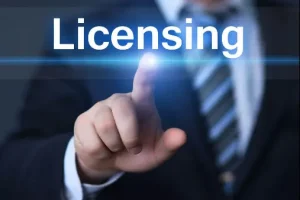You watch your favorite show on TV and enjoy it. Switch to another and move as if nothing happened. Have you ever asked yourself how TV shows you just watched makes money? Well, that is the question we explore today.
You will be surprised that they make good money. generally, TV shows generate a ton of income for their producers, who then share some of it with talented actors and writers.
However, many people think that TV shows make money through advertising, but this is only one way they do it. In this article, we’ll be looking at some of the other ways that TV shows can make money
11 ways how TV shows generate Income
TV shows are expensive to produce, which means they need to earn back their budgets and make a profit. They have to entertain but also make a business sense of generating income.
TV shows make money by charging fees for TV airing or streaming rights, through sponsorships, selling merchandise, advertising and endorsements. Shows also generate income by licensing their trademarks or copyright material to third parties and charging fees for appearances by their casts or promoters.
Let us explore in detail how they do this.
1. Live TV Rights Fees
Live events are a great way to generate revenue. They work as a promotional tool, or they can be a way to sell tickets.

When you watch live television on cable, satellite, or streaming services like Netflix, Hulu, or Amazon Prime Video, you are paying for the rights to that content and your subscription fee.
Live rights fees usually go to the individual networks that air the show, not just the show itself — but they do allow them to recoup some of their budgets as well as make money.
2. Merchandise Sales
Some television shows offer special merchandise to their fans. Some of these items can be bought online or in stores near the show’s studio.
The merchandise can be sold at higher prices than what it costs to make them. This is an excellent opportunity for those who want to make money from their favorite television shows.
You can sell branded merchandise directly from your website or through Amazon if you have a popular show. You can also create an e-commerce site where fans can buy products directly from you.
3. Theme Parks
Many television shows have become popular enough that they have been adapted into theme parks around the world.
These theme parks often have everything you would expect from a classic theme park, such as roller coasters and attractions.
Still, they also often include the trademark elements of the show itself, such as characters from the show and set pieces from the series.
If you like watching your favorite TV show, going to one of these parks may be worth considering!
4. Sponsorships
TV shows can get sponsored by companies that want to protect their brand, or even product lines, on TV. A show like Shark Tank can be sponsored by financial companies that want to attract viewers.

This can be evident in various ways – from limited-time to full-time sponsorships with branding elements on the show itself.
These deals are great for brands because they allow them to reach a large audience and build brand loyalty among viewers who have seen their product or service advertised onscreen.
5. Advertising
Advertising is another way that TV shows generate income. Networks and production companies determine advertising rates, but they range from $300 per 30-second spot in primetime to over $2 million per 30 seconds during a Super Bowl broadcast!
Promoting goods and services through television commercials has long been one of the most popular ways to make money from TV shows. Advertising rates vary with each ad campaign, and the amount advertisers spend on each ad campaign. I
If you have a website or blog where you promote products and services, you can also include an online ad at no additional cost to the advertiser!
6. Subscriptions for Streaming Services
The most popular route to make money from TV shows is through subscriptions. Netflix, Hulu, and Amazon Prime Video offer monthly subscriptions for subscribers (and sometimes for non-subscribers).
The subscription cost depends on how many episodes you want to view each month but typically ranges from $7-$14 per month.
You can also watch episodes as they get released. Some services also allow you to watch shows ad-free for an additional fee.
7. Licensing of the Show’s Characters
The show’s characters are valuable to the producers, who can use them in other projects or as advertising for their other products.
For example, if you have a character like Fry from Futurama, you can license him and use him in a movie or book. If he is from a TV show and becomes popular enough, you’ll be able to make money from licensing his name alone!

A licensing deal is usually a multiyear agreement with an outside company that allows the show’s characters to be used in merchandise or other products related to the show, such as toys and games, for example, Disney Princess dolls.
The license can last for decades and allow you to make a lot of money from it because kids love buying things!
Licensing fees are generally split between a company that owns the brand, its licensee(s), and often the licensor, which is usually Disney.
8. Commercials and Endorsements
Shows such as The Big Bang Theory or NCIS can profit from their brand recognition by including advertising spots within the show. These ads can range from product placements to public service announcements.
Some actors, musicians, and athletes earn money through company endorsement deals. This is done through specific products they endorse, such as clothing lines or food products.
9. Movies Based on Cartoon Series
Movie studios are always after new ways to make more money. The more they can get out of a movie, the better. This is especially true when it comes to TV shows. TV shows have become movies to make more money and vice versa.
It’s not uncommon for a movie studio to purchase the rights to a popular show and turn it into a movie. This is one of the fastest ways that studios can generate revenue. They buy the rights and then release them on DVD or Blu-ray later.
While this may seem easy to make money, it can be risky. When creating a movie based on a popular series or book series, many things need to get considered before releasing it on DVD or Blu-ray.
You need to consider what type of audience you want your product marketed towards (kids vs. adults), how much you want your product to be promoted within their market (television advertisements vs. billboards), and what kind of budget needs to be allocated towards marketing (how much money do you need to market your product successfully).
10. Selling Rights to Music from Shows
Selling the rights to music from TV shows is one of the most popular ways producers make money from their shows.
Music from movies and TV shows has been around for years, but recently there has been an increase in the number of artists who want their music featured in television shows.
The amount of money that can come from selling rights to music from TV shows varies greatly depending on how much exposure you have as an artist and how high-profile your work is compared with other artists’ work.
If you are already well-known in your genre, then you might have more leverage when negotiating with networks or streaming services like Netflix or iTunes than someone who isn’t that famous.
11. Making Money with Podcasts and Vodcasts
Podcasting is an industry that has exploded in recent years. You can podcast on your own and have your show, or you can be a member of a network like Gimlet Media and have your show syndicated across hundreds of other podcasts. Podcasting generates revenue for its hosts in several ways.
Even better, podcasts are becoming more popular than before, and with good reason. They are free to listen to, and when you see your name in the credits of a podcast, it makes it feel like you’ve accomplished something.
Many people who have a podcast can make money even if they are not doing anything else — just by selling advertising.

I am a freelance journalist in the entertainment industry who currently works as a writer in showbiz. I have a particular interest in TV shows and online programs. I also write on news, ideas, trends, and updates.
